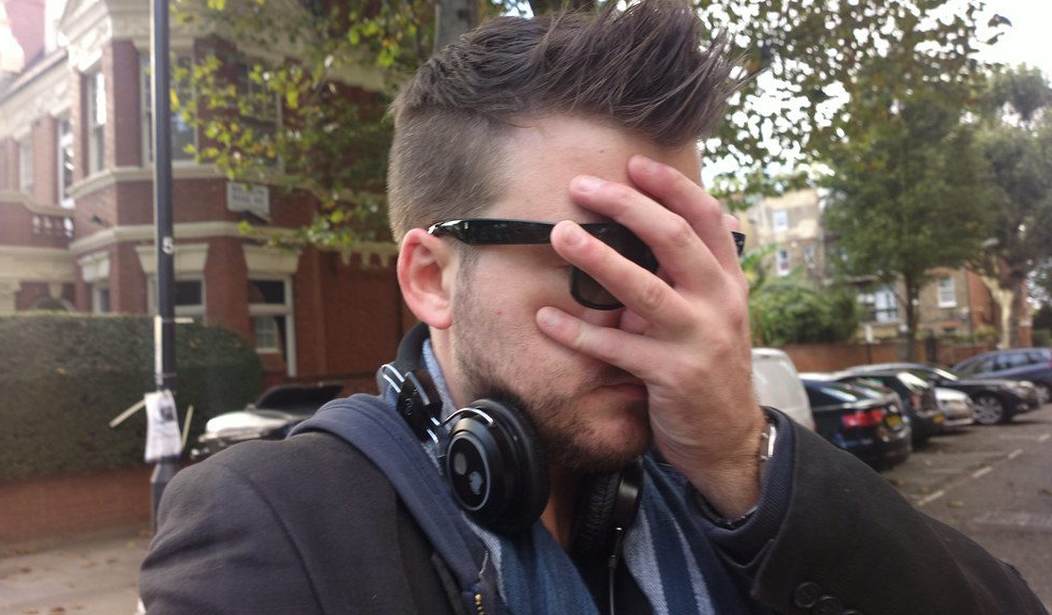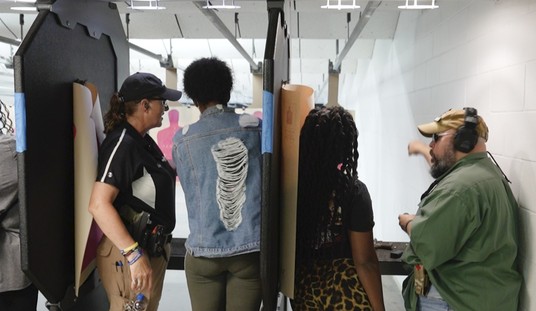Words matter. They’re absolutely essential as a way to communicate ideas, and I absolutely despise it when people try to take words and make them mean something so different as to strip them of any meaning at all.
About the only thing in that regard I despite more is when people try to police language.
They don’t need to actually need the force of law to police it, either. They just have to convince you that it’s wrong to use it.
Ordinarily, I don’t talk about it here because, well, this is a site about guns. While I use language to discuss it, it’s not like those kinds of people are going to successfully dictate to use what words we can and can’t use to talk about them.
But as many anti-gunners try to stigmatize gun ownership, a workshop at Utah Valley University seeks to stigmatize gun-related words and phrases.
The UVU School of Arts Inclusion Committee hosted a Dialogue on Inclusion about gun-related language on Thursday, Jan. 25.
Steven Rimke, assistant professor of voice and speech at Utah Valley University, led the discussion to encourage students to rethink how they speak. He focused the discussion on gun-related language that have become casual parts of people’s vocabulary.
“My initial goal with this workshop is not to finger wag or scold you … but just simply bring awareness to it,” Rimke said.
Following the COVID-19 pandemic, gun-related deaths have increased in the United States to record highs, according to Pew Research Center. More students have been exposed to gun violence and have sensitivities related to it, prompting the discussion.
“I could do better … I could really take care of what I’m saying to other people, just because we don’t really know what kind of backgrounds everyone comes from,” Makenna Ashby, a UVU musical theatre student from South Jordan, said.
Rather than proposing substitute language, Rimke showed a list of firearm-related words in the everyday vernacular to make his audience more aware of their language.
“My personal belief (is) that becoming aware of words is the first step one can take to bridge empathy and understanding,” Rimke said.
He added that he preferred for students to create their own substitutes because of their individual agency and creativity.
Oh, how freaking kind of him.
But honestly, what’s the big deal. Do we really use that many firearm-related phrases in our day-to-day life? Well, yeah, sort of.
And here are a couple of examples.
Rimke also emphasized the importance of directionality with violent language, using the word “bullet points” as an example. The word “bullet” has a negative connotation, but the term isn’t pointed in a certain direction. Conversely, a phrase such as “they shot my idea down” feels more targeted and could be more easily replaced with a positive or neutral phrase.
The thing is, both of these have been in use for generations at this point. We all know what “they shot my idea down” means and that it’s not dangerous or anything else.
But it seems Rimke, for all his claims about not wagging fingers, is actively trying to police our language.
Awareness is just the first step, Rimke said. Action follows awareness to create a safer environment for all. Rimke invited students to think for themselves what their next step should be.
“What next steps do you feel we can do to make spaces more equitable and safer regarding the use of violent language?” he said.
The thing is, none of those words make anyone less safe.
While language can be used to convey all kinds of ideas, including those that can lead to harm for certain people, none of these phrases that tie into guns or gun-related things are among them.
“But some of these students have been exposed to gun violence,” someone will undoubtedly say, which is also in the article, to which I say that if they’re that triggered by certain phrases that have nothing to do with actual and explicit threats then perhaps they should seek counseling.
It’s hilarious that the kind of people who seem to think that gun-related language makes them less safe want us to take them seriously. Not just on this, either, but literally anything.
Even if guns made us less safe–a point I’m not about to concede, just bear with me here–it would play absolutely no role in whether certain phrases make us less safe.
The problem is that “safety” in this context is nothing but an attempt to justify their attempts to control your language. My colleague David Strom, writing at our sister site Hot Air, had a great piece on Tuesday touching on this very issue. While the initiating issue is different, the overall point is the same, and he argued:
Feeling “safe” from opposing points of view is antithetical to the purpose of universities, as long as the issue is speech conveyed in a conversation and not used specifically to threaten or intimidate. The proper remedy for sharing bad opinions is countering them with better ones.
All this, though, is beside the point. Universities aren’t actually interested in making anybody feel safe, psychologically or otherwise. They simply use the “safety” argument to sort out speech they like from that they don’t. That anybody claims that Ben Shapiro makes them feel unsafe is absurd, yet he has been attacked relentlessly as making people feel “unsafe.” My sister could punch harder than he, and Beege could knock me out. Now Chris Rufo could probably do some damage, but last I checked he has yet to punch a protester.
Students for Justice in Palestine is latching onto the “safety” argument in the way that all censors on college campuses have in recent years. It is complete crap, and everybody knows it. “Safety” is one of those words that has been redefined by critical theorists, and it means exactly and only what they want it to mean.
In this case, it’s an attempt to push anything even sort of related to guns out of the public consciousness except in connotations that evoke fear such as violent crime.
As per usual, though, they keep using safety as an argument because no one could ever take issue with safety, right?
Except perfect safety means the loss of freedom, which is kind of the point.
In this case, it’s just “raising awareness” about this horrific use of language. It never stops there. Next, universities will actively police language to remove these phrases. Then students and faculty will be punished for saying things like “I let them have it with both barrels” or something similar.
And yes, this ties into our gun rights because if they can associate guns with a lack of safety sufficiently enough, say good bye to the Second Amendment.








Join the conversation as a VIP Member